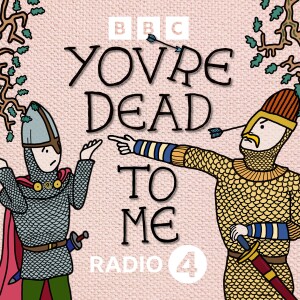Almost 60% of the world’s population live in cities. And this trend is expected to continue - by 2050 nearly 7 of 10 people will live in urban environments.
Although more than 80% of global GDP is generated in cities, there are challenges: increasing carbon emissions and environmental pollution, traffic congestion and urban vulnerability, exposed by natural disasters such as floods and storms.
The creation of a digital twin - a digital representation of a real city, infrastructure or even a whole country - could help decision-makers simulate real situations, allowing them to make better decisions. Situations like floods and other extreme weather events.
We look into the technology and find out what the benefits and limitations are...
And the former foreign minister of Tuvalu, Simon Kofe, explains how climate change has forced his country to consider preserving their whole statehood and culture in the metaverse.
Produced and presented by Ivana Davidovic
(Image: A digital representation of Singapore. Credit: Singapore Land Authority)
More Episodes
Nigeria's election and the economy
 2023-02-15
2023-02-15
Sweden leads green steel race
 2023-02-15
2023-02-15
What does studying in the UK cost Africans?
 2023-02-14
2023-02-14
Big sporting event, very small town
 2023-02-13
2023-02-13
Getting into business: Founding a billion dollar firm
 2023-02-10
2023-02-10
Getting into business: Start-up capital in Africa
 2023-02-09
2023-02-09
Getting into business: Starting out
 2023-02-08
2023-02-08
Getting into business: Selling on social media
 2023-02-07
2023-02-07
Getting into business: Mentoring
 2023-02-06
2023-02-06
What is the cost of lower inflation?
 2023-02-03
2023-02-03
ASML: Inside Europe’s most valuable tech company
 2023-02-02
2023-02-02
My hijab, my way
 2023-02-01
2023-02-01
The market for military memorabilia
 2023-01-31
2023-01-31
The boss of Africa's biggest bank
 2023-01-30
2023-01-30
Cost of living: Dresden, Germany
 2023-01-27
2023-01-27
Cost of living: Hospitality
 2023-01-26
2023-01-26
Cost of living: Housing
 2023-01-25
2023-01-25
Cost of living: Childcare
 2023-01-24
2023-01-24
Cost of living: Transport
 2023-01-23
2023-01-23
The resurgence of vinyl records
 2023-01-20
2023-01-20
Create your
podcast in
minutes
- Full-featured podcast site
- Unlimited storage and bandwidth
- Comprehensive podcast stats
- Distribute to Apple Podcasts, Spotify, and more
- Make money with your podcast
It is Free
You may also like

The Business Of


Global News Podcast


The Infinite Monkey Cage


Friday Night Comedy from BBC Radio 4


You’re Dead to Me


Elis James and John Robins

- Privacy Policy
- Cookie Policy
- Terms of Use
- Consent Preferences
- Copyright © 2015-2024 Podbean.com



 iOS
iOS Android
Android